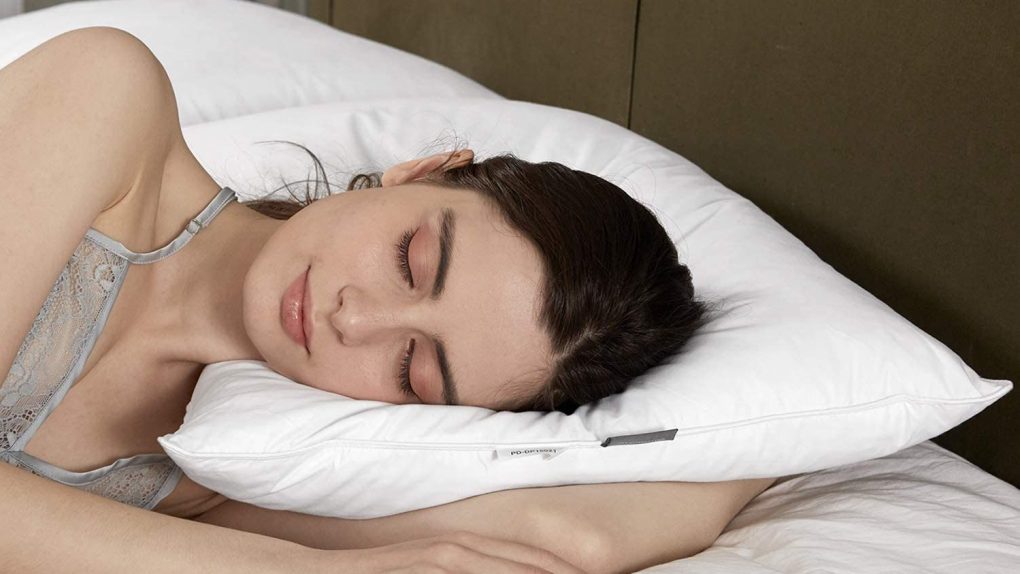A new AI pillow could help people with snoring problems. The “next-generation anti-snore pillow” is designed by HOOTI, and it’s currently available on Kickstarter, where there are still more than 20 days left in its campaign. Despite having so long, the pillow has already garnered quite a bit of a following, raising more than $49,000 in the first few days.
The pillow looks like any other memory foam pillow you can buy in stores, but it comes with a power cable and a special detection system that detects the telltale vibrations caused by snoring. When it detects these vibrations, the bone conduction system triggers an automated system that adjusts the pillow to help shift your sleeping position and remove any airway restrictions.
The makers of the pillow say that the data it reports is more than 90 percent accurate and that two pillows can even operate simultaneously right next to each other without interfering with each other’s readings. The system relies on an airbag within the AI pillow that can adjust the head slightly without waking the user. You can see a bit about how it works in the video embedded within this article.
The outside of the pillow is washable, as well, though the inside isn’t—for very obvious reasons. And, if you don’t want to deal with the automatic adjustments, you can always turn off the “smart intervention” system and just capture the sleep data that the companion app keeps up with.
The company says it plans to start shipping the AI pillow in October. It is available at a special launch price of $199 on Kickstarter right now—which HOOTI says is 60 percent off the expected retail cost. Shipping is estimated to be around $35 U.S. dollars, and it will come with the power cable and a travel bag for those who want to take it with them on their trips.
If the pillow can actually help folks with their snoring, then it’ll definitely prove useful for many people around the world. If you’re interested in checking it out for yourself, you can head over to the Kickstarter page to see which pledging options are still available.








